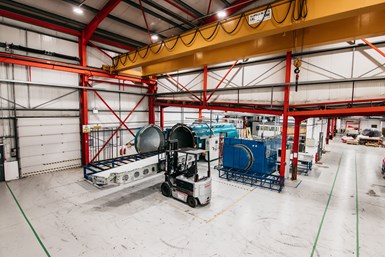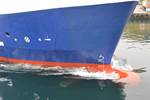Aerospace project secures funds for developing lightweighting technology
A joint project between ÉireComposites, Plasma Bound and TU Dublin will be supported by the DTIF.

Photo Credit: ÉireComposites
ÉireComposites (Galway, Ireland), Plasma Bound (Dublin, Ireland) and Technological University Dublin (TU Dublin, Dublin, Ireland) have obtained funding for the Ad Astra project. The work will be supported under the Disruptive Technologies Innovation Fund (DTIF) Call 5, which is led by the government of Ireland and Enterprise Ireland.
Lightweight composite materials’ strength-to-weight ratio versus metal alloys provides reduced weight and increased fuel efficiency, but rapid, cost-effective bonding of these materials can be challenging. Effective surface preparation is a prerequisite for achieving a strong, durable bond, but current surface preparation techniques can be highly labor intensive, increasing process costs.
Plasma Bound has developed a surface treatment called controlled polymer ablation (CPA), which is applied prior to the bonding of lightweight composite materials. This automated and highly repeatable process, previously prototyped successfully by ÉireComposites, is designed to selectively remove the top layer of the polymer via plasma ablation with minimal thermal input and without damaging the fiber reinforcement of the composite material.
TU Dublin, the third partner of the team, brings its material testing and surface characterization capabilities to the consortium. These skills will be utilized to show that the CPA process results in higher forces prior to failure. When performing against traditionally prepared surfaces, the CPA technology is said to demonstrate improved repeatability, reliability and sustainability.
The development of the plasma ablation process through the DTIF helps remove barriers and enables greater adoption of lightweight materials in multiple areas of the manufacturing process for the aerospace industry. In addition, it intends to generate further economic growth in all regions of Ireland and create high-quality jobs for skilled people who live and work in rural Ireland.
Related Content
-
Plant tour: Spirit AeroSystems, Belfast, Northern Ireland, U.K.
Purpose-built facility employs resin transfer infusion (RTI) and assembly technology to manufacture today’s composite A220 wings, and prepares for future new programs and production ramp-ups.
-
Carbon fiber, bionic design achieve peak performance in race-ready production vehicle
Porsche worked with Action Composites to design and manufacture an innovative carbon fiber safety cage option to lightweight one of its series race vehicles, built in a one-shot compression molding process.
-
Large-format 3D printing enables toolless, rapid production for AUVs
Dive Technologies started by 3D printing prototypes of its composite autonomous underwater vehicles, but AM became the solution for customizable, toolless production.













.jpg;maxWidth=300;quality=90)

